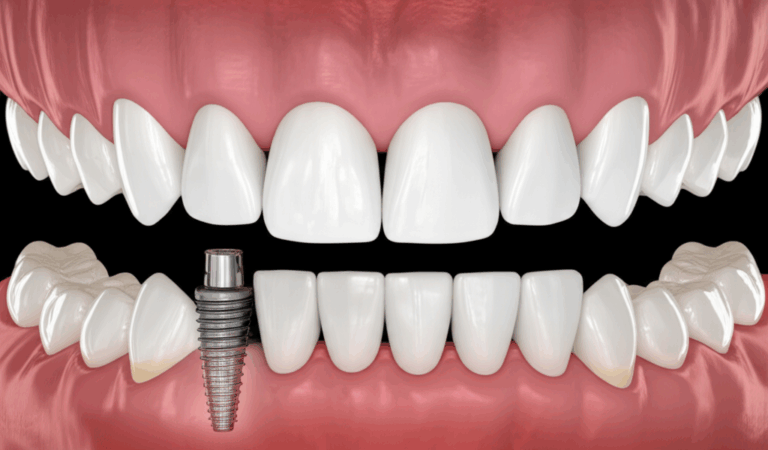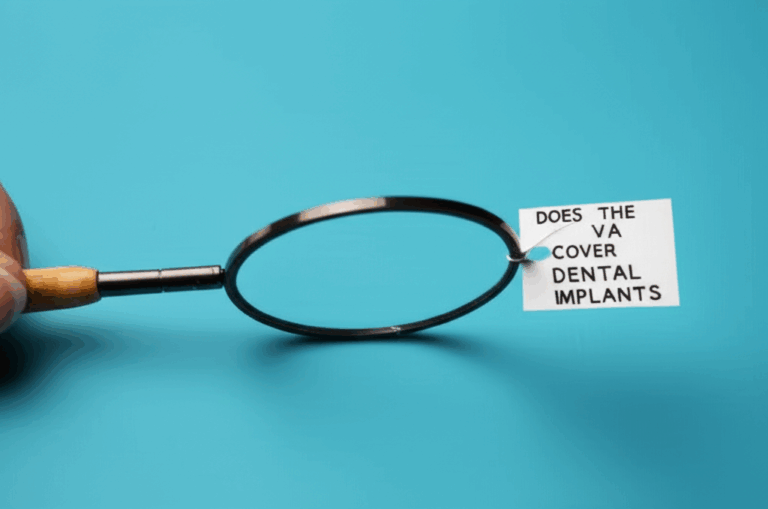
Does MassHealth Cover Dental Implants in Massachusetts? Your Simple Guide
Millions of people in Massachusetts use MassHealth for their health care, but when you need special dental treatments—like dental implants—it can get very confusing and stressful. Maybe your dentist suggested implants as the best choice for you. Or maybe you have loose dentures and wish you could finally feel happy when you smile or eat. If you’re asking, “Does MassHealth cover dental implants?”—you’re not alone, and you’re in the right place.
Whether you’re checking for yourself, a family member, or just trying to figure things out, it’s good to have clear and honest info. We’ll explain MassHealth dental implant coverage in a way that makes sense, sharing real-life examples as we go. Let’s walk through this together and get you the answers you need.
What’s In This Article
- What Is MassHealth, and How Does Dental Coverage Work?
- Does MassHealth Cover Dental Implants? The Simple Answer
- What Dental Services Does MassHealth Usually Cover for Adults?
- When Can Dental Implants Be Covered? The Rules and Who Can Get Them
- How the Prior Authorization Process Works
- Other Tooth Replacement Options MassHealth Covers
- Finding the Right MassHealth Dental Provider
- If You’re Denied—How to Appeal
- What to Do If You Have to Pay Yourself
- Key Points and What to Do Next
What Is MassHealth, and How Does Dental Coverage Work?
Let’s start at the beginning. MassHealth is Massachusetts’ Medicaid program. It helps people with low incomes—including kids, seniors, and those with disabilities—get health and dental care, often for free or at a low price. But even though MassHealth covers a lot of dental work, it does not pay for everything.
Dental coverage for adults is more limited than for children. Kids get almost all dental services, but adults sometimes don’t know what is included—especially for expensive treatments like dental implants.
Think of MassHealth like a big umbrella that covers lots of health and dental needs. It protects you most of the time, but for rarely needed things—like dental implants—you need to check if you’re really covered.
Does MassHealth Cover Dental Implants? The Simple Answer
Let’s get right to it: MassHealth does cover dental implants for some adults, but only in really special cases. For most people, dental implants are seen as optional or just for looks—so MassHealth doesn’t pay for them.
So when will MassHealth say yes to implants? Only when dental implants are “medically necessary.” That’s a strict rule, and we’ll explain more below. Usually, you’ll be offered dentures or bridges instead, since they cost less and still help most people.
But remember: hearing “maybe” isn’t the end. If you have a unique health problem or your case is different, there’s still a way to try.
What Dental Services Does MassHealth Usually Cover for Adults?
If implants are only for rare cases, what does MassHealth cover for most people? The good news is, MassHealth covers a lot of regular dental work for grownups, such as:
- Cleanings and checkups
- Fillings for cavities
- Taking out teeth (extractions)
- Root canals
- Crowns (sometimes)
- Full and partial dentures
- Fixed bridges (in some cases)
- Emergency dental care
These are the main dental treatments people get with MassHealth. If you have missing teeth, you’ll most likely get dentures or, sometimes, bridges—because they work well and don’t cost as much.
So what makes dental implants different? Implants are more lasting and require surgery. Dentists put a tiny metal post in your jawbone, then put a new tooth on top. It feels real and doesn’t move, which is why people who can’t stand loose dentures really want them.
But since they are tricky to do and expensive, MassHealth is much more careful about approving them.
When Can Dental Implants Be Covered? The Rules and Who Can Get Them
This is where it gets a bit harder. MassHealth will only pay for dental implants if you really, really need them for health reasons. What does “really need” mean?
Think of it like building a house. Most people use regular wood beams. But if your house has been hit by a tornado, or the ground is shaky, then normal wood won’t work—you have to use something much stronger. Dental implants are like those heavy-duty beams—MassHealth will help pay only if nothing else can do the job right.
When MassHealth Might Cover Implants:
1. Big Injuries to the Face:
You were in a bad car crash or had an injury that ruined your jaw or mouth. Normal dentures or bridges just won’t work, no matter what.
2. Born That Way (Birth Problems):
You were born missing lots of teeth, or your jaw is shaped so oddly that dentures or bridges can’t fit right.
3. Cancer or Major Surgery:
You lost part of your mouth or jaw after treatment for cancer. Dental implants might be the only way for you to eat or talk again.
4. Other Special Medical Reasons:
Some people can’t use dentures because they gag easily, have allergies, or have a mouth shape that makes dentures impossible. If your dentist can prove this with paperwork, implants might be the only choice.
Important:
MassHealth will not pay for dental implants if you only want them to look better, because you prefer them, or if you just don’t like dentures.
What “Medically Necessary” Means
It means that implants are:
- The only way to help you eat, talk, or look normal after illness or injury.
- Documented with proof—like X-rays, dental records, and written notes from your dentist and doctor.
- Chosen after other normal tooth replacements (like dentures and bridges) have failed or clearly won’t work.
If your dentist doesn’t collect a lot of proof, MassHealth won’t even think about paying for implants.
How the Prior Authorization Process Works
Let’s say you and your dental team think you should get implants, and that you fit one of the rare cases above. What now? MassHealth won’t just take your word for it—you have to get prior authorization. Think of it like getting permission before you buy something expensive. No permission, no payment.
How It Goes:
- This matters. Only someone signed up with MassHealth can start the paperwork.
- You’ll need X-rays, maybe a scan, dental molds, medical records, and more.
- Your dentist needs to show, in detail, why regular treatments won’t work and why implants are a must. This might include a note from your doctor.
- All your info goes to MassHealth for review.
- Experts at MassHealth study every piece to see if you really fit their tough rules.
- If MassHealth says yes, you can get the work done and it’s covered. If not, you’ll get a letter explaining why.
How to Help Your Case:
- Double-check your records; missing papers are why many requests get denied or held up.
- Be ready to wait; it often takes weeks.
- Stay in touch with your dentist and ask how things are going.
Other Tooth Replacement Options MassHealth Covers
If MassHealth won’t pay for implants, don’t worry! There are still good, affordable ways to fix your smile.
1. Full or Partial Dentures
- What they are: Removable false teeth you can take out.
- Good Points: Don’t cost much, covered by MassHealth, look decent.
- Downsides: Might slip or move, and take a little getting used to.
2. Fixed Bridges
- What they are: Fake teeth that stay in, held by real teeth on each side.
- Good Points: Stay put, covered sometimes.
- Downsides: You need good teeth to attach them to, and they’re not great if you’ve lost a lot of teeth in one spot.
3. Repairs or Changes to Dentures
- MassHealth pays to fix, adjust, or reline your old dentures so you stay comfortable.
Why MassHealth Likes These Choices
It’s all about helping the most people for the least money. Dentures and bridges work for most folks and don’t cost as much as implants. So that’s what MassHealth usually offers.
Finding the Right MassHealth Dental Provider
Ready to take the next step? Here’s how to pick the best dentist—especially if your situation is tricky like needing implants.
Step 1: Use MassHealth’s provider search
Find dentists who take MassHealth near you on their website.
Step 2: Look for experience with hard cases
Ask if the office has worked on dental implant paperwork before. If not, keep looking.
Step 3: Ask lots of questions
Try: “Have you helped someone get MassHealth approval for medically necessary implants before? What worked?”
Step 4: Find a partner
A dentist who listens and explains things will help you the most.
Remember: not all dentists know how MassHealth paperwork works, so you might need to call more than one to find the right fit.
If You’re Denied—How to Appeal
Let’s be honest: It’s hard to get MassHealth to approve dental implants. If you get denied, don’t give up! You can appeal.
How to Appeal
- It says why you were denied.
- Ask what needs to be better next time.
- Some groups can help with appeals, especially if your case is very serious.
- Usually you have 30 days. Double-check your letter.
- More records, more doctor notes, or new X-rays can help.
- A different MassHealth staff member looks at your appeal and makes a final decision.
Where to Get Help
- MassHealth customer service: Call them for help or to ask what to do next.
- Legal aid groups: Groups like Health Law Advocates may help for free or low cost.
- Patient advocate offices: Some clinics and hospitals have staff whose job is to help people with insurance issues.
Appeals are a pain, but you have the right—and sometimes, if you keep trying, it works.
What to Do If You Have to Pay Yourself
If MassHealth says no and nothing works, you still have choices. Dental implants can cost thousands for each tooth (and more for a whole mouth), but there are ways to make it more affordable.
1. University Dental Schools
- Tufts and Boston University let student dentists practice, so it costs less than a private clinic. It’s still pricey, but you can save money.
2. Community Health Centers
- Some local clinics have cheaper fees or let you make payments, though they may not offer implants.
3. Dental Discount Plans & Financing
- These aren’t insurance, but you pay less for dental work if you enroll. Look for a plan that includes implants.
4. Do It In Steps
- Your dentist could break up your treatment into smaller visits so you pay over time.
5. Shop Around
- Some dental labs and offices offer special low-price bridges, dentures, or implant teeth. For example, you can talk to your provider about dental ceramics and how lab work affects price and quality.
Weighing the Costs
Paying cash for implants is a big deal. Some people love the comfort and confidence they give. For others, a comfortable set of dentures is just fine. Always ask for full costs and honest advice before you say yes.
Key Points and What to Do Next
That was a lot of info! Here’s what really matters:
- For most adults, MassHealth does not pay for dental implants.
You’ll usually get dentures or bridges instead.
- You can get implants, but only for special health reasons and with lots of proof.
This includes things like bad injuries, cancer, birth defects, or when all other treatments have completely failed.
- You need permission first, and the paperwork is strict.
You and your dental team have to make a strong case.
- MassHealth covers dentures, bridges, and emergency dental care for adults.
These work for lots of people and bring back their smile.
- If you’re turned down, you can fight it.
Patient advocates and legal groups can help.
- If implants just aren’t covered, look for cheaper care at a dental school, local clinic, or through payment plans or discount dental plans.
The more you know, the less scary it is.
What You Should Do Next:
Your teeth are about more than just looks—they help you eat, feel good, and live your life. No matter what you choose, know there are people and resources to help you the whole way.
Keep smiling, and keep asking good questions!








